On a rainy September day, the taping of Top Chef Canada’s Restaurant Wars took place at the CN Tower’s 360 Restaurant.

In the signature Top Chef challenge, Restaurant Wars, the chefs are tasked with creating a restaurant concept, menu and performing a full service for a restaurant full of discerning diners.
The remaining chefs are split into two teams of four and each given a section of the 360 Restaurant to debut their menus.
READ MORE: ‘Big Brother Canada’: 7th evicted houseguest becomes first jury member
Global News took part in the Top Chef Canada taping that day to witness (and taste) the beautiful dishes first hand.
Seated at team “Lake’s” section, the sun began to shine through the clouds as the food was set on the table.
With the food plated perfectly, and the chefs showing off their Canadian cooking capabilities despite the culinary challenges, it was hard to pick a favourite out of all the dishes.
More recently, Global News sat down with head judge chef Mark McEwan and host, Eden Grinshpan in Toronto to talk about how they judge such delicious plates.
Global News: What do you think makes this show stand out from other cooking competition shows?
Mark McEwan: Well it’s a show for professionals. That’s number one. It’s not an amateur cooking show and there’s a lot of those out there. It’s attracting the top echelon of chefs in the country and that’s what we hope to do. And over the years it’s gotten better and better and better. And the more that these characters have participated on the show, the more they attract other comparably talented people. That’s really what makes the show because if the food is great, the conversation is liveliness — and it’s an amazing day. If the food is bad… I go back to Season Four where the food was not as good and it was a hard season to make happy. When the food lays flat the whole thing goes flat.
Eden Grinshpan: But that was also before I joined so (laughing).

Get breaking National news
What do you think inspires these chefs to come on the show?
EG: I think that Top Chef Canada is a place for cooks and chefs that are trying to get to that next level of their career. It’s a place for them to come and showcase what they’ve learned and who they are. Anyone that signs up — I think — is feeling pretty good about where they are in their career and probably either wants that extra boost to the next level or maybe it’s just some validation. It’s such an intense and incredible competition and you really need to be at a certain level in your career in order to compete. Obviously, you know the producers select the best of the best from the country to compete against the best. There’s a lot at stake. This is their livelihood, this is their passion and they really want to showcase what they’ve learned and what they’ve worked on throughout their career.
MM: I think it can really help slingshot your career. If you land on the show and you win or you come in second or third but you really put on a good show, then it’ll catapult your career. It’s going to create attention for you that you’ve never had.
When I was at the taping of Restaurant Wars everything on each plate was so beautiful. Do you have any secrets for how you are able to critique the food on the show? What would make someone’s plate stand out from another?
MM: It’s very, very simple. Whenever you sit down with a plate of food you evaluate it as a beginning, a middle, and an end. First impressions are what they are. They’re either good, bad or simple it doesn’t really appeal to you. And then you get into the structure of the plate, how it’s seasoned, the flavour of it. Is there a balance to it? Is there acidity? Is there brightness? Is there contrast of texture? And then the flavour of the dish and how it all lands on your palate. How does it feel? What is it? How does it linger?
EG: Taste is the most important thing in this competition because you can make a gorgeous plate that doesn’t taste like anything. But food in the end, the flavour, that is what it’s all going down to. If you’re going to screw up don’t screw up the flavour. You can screw up the plating but don’t screw up the flavour.
MM: Yeah, I’ll forgive you for a messy plate if the dish was amazing. But if the dish is perfect (looking) and it’s terrible tasting then the last memory of that plate is not going to be a good one. You’re going to get voted on pretty harshly.
What are you excited for viewers to see this season? What makes it stand out from the other seasons?
MM: Just the competency. I think the caliber of the chefs and the technique they brought to the table was really extraordinary. And at the end of the day, it’s a food competition and that’s what it should be about. It’s about head to head competition technique, great product delivery under pressure and they really lived up to it in spades. It was quite amazing.
What advice would you give chefs that want to come on this show but are kind of hesitant about being on TV?
EG: It’s all scary. It’s all unknown. You will eventually get used to the cameras and the pressure of television. You will get used to what happens behind the screen because actually shooting on a television show and cooking and with the time constraints and the pressure of feeding the judges — everything adds up. And it can be a lot. So for the television aspect I think eventually you do just get used to the cameras. Start off at the beginning with food that you’re comfortable with that you know are star dishes. You need to validate who you are in the competition and you just kind of know a lot of the times what does well because you’ve served those dishes to people and you’ve already heard the critique and the feedback. Start off confidently with dishes that you’re comfortable with. And then once you get the hang of the set, once you get the hang of the whole competition, that’s when you can start to probably be a little bit more bold. Plus sometimes you can’t even control it because the challenges are so crazy and you have to be really thinking outside the box. You’re always off balance and unfortunately you think you’re organized and you have the plan in your head and then they mix it up on you and everything you thought about doesn’t pertain to the day. But I think for chefs that want to apply you really have to look at yourself in the mirror and say ‘Am I really capable of cooking that well? Do I have enough experience?’ And I think that’s the big question you have to ask yourself.
Have you ever had a chef come on the show and then realize ‘oh this might not be for me.’
EG: Absolutely. That happened last season. We had a chef actually leave the competition. He just felt like his food wasn’t coming across the way he envisioned it to. And it wasn’t because he wasn’t a great cook. It was because the pressure of being on camera. It was too much for him. And that’s also something that I just like people to know because it’s tough. A lot of the talent that cooks on Top Chef Canada, most people haven’t tried their food. So you pictured them as being as good as the food that they’re showing. But a lot of the time the pressure is so overwhelming that it can really affect the quality of the food that they put out and what they’re really capable of doing.
What is your favourite food ever?
EG: Pizza! The New York style pizza
MM: A big whopping can of caviar and a glass of champagne or a martini.
—
Top Chef Canada Season 7 airs Monday nights at 10 p.m. ET on Food Network.

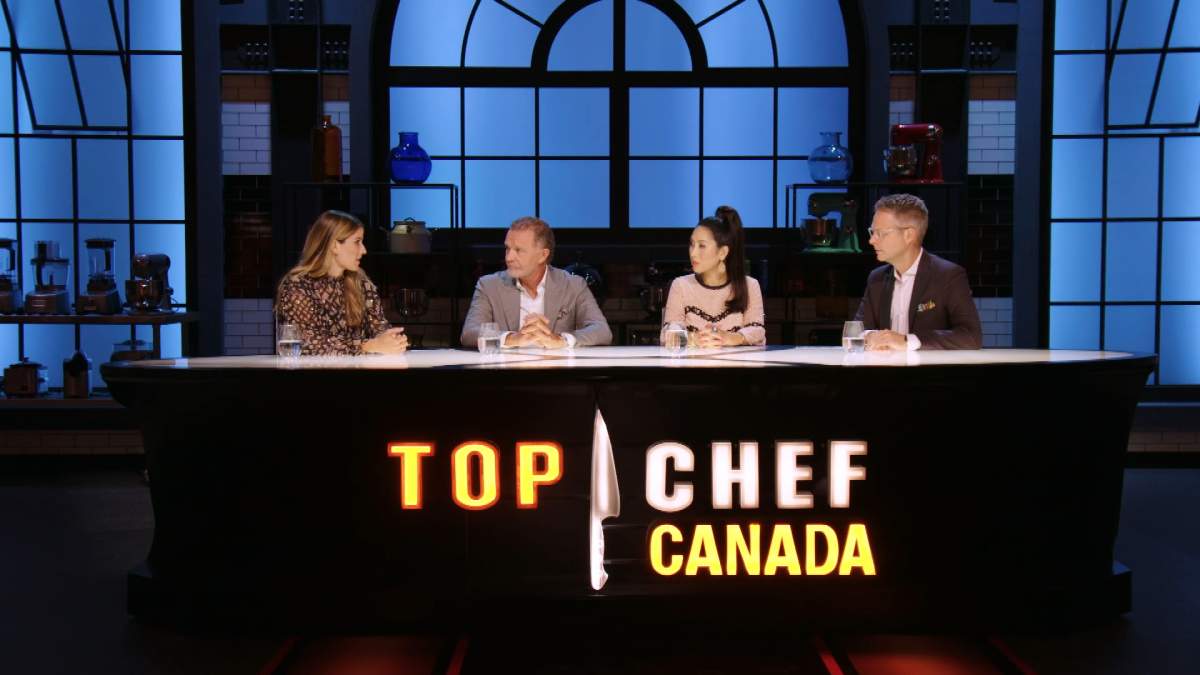

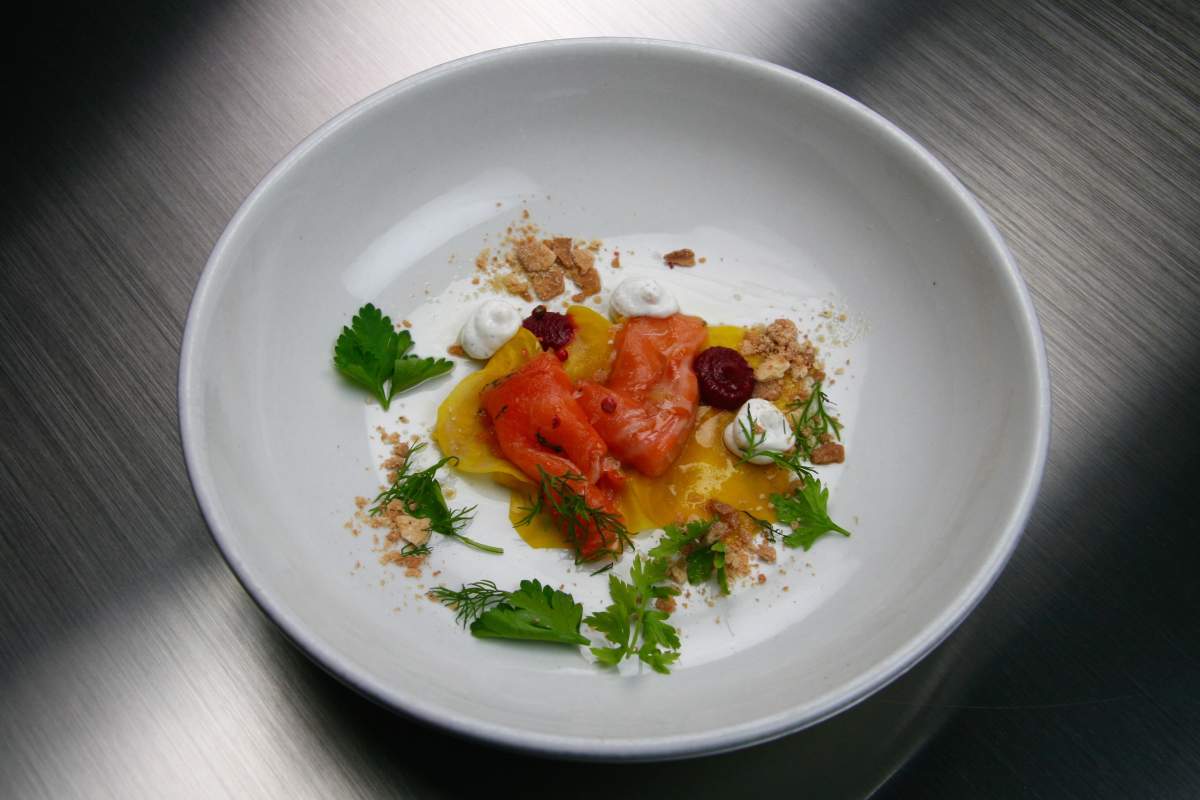




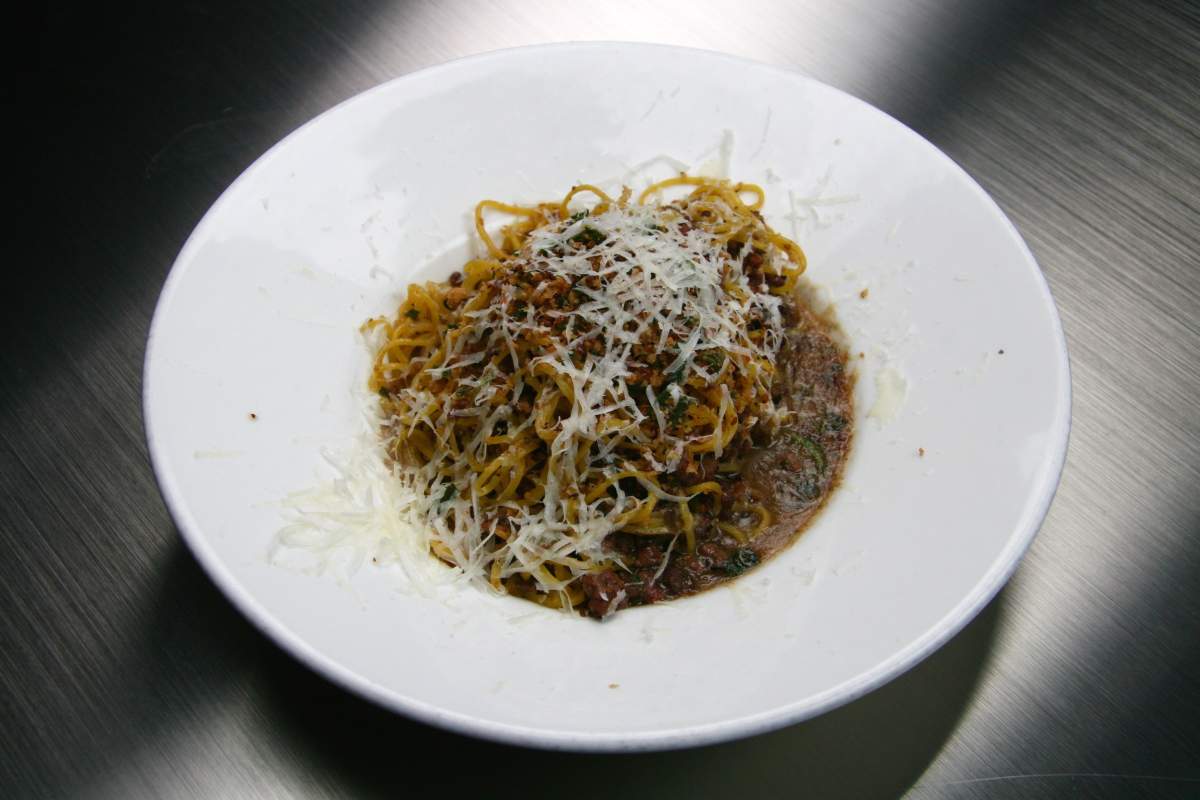
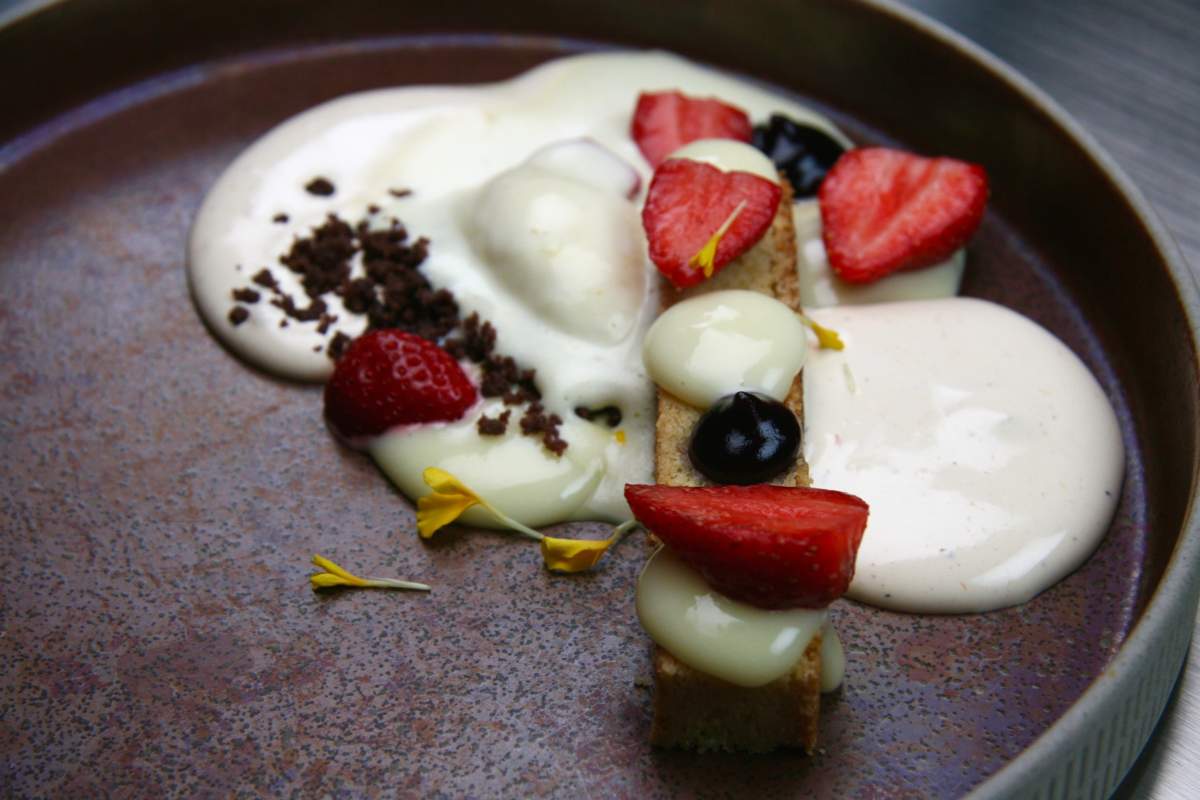
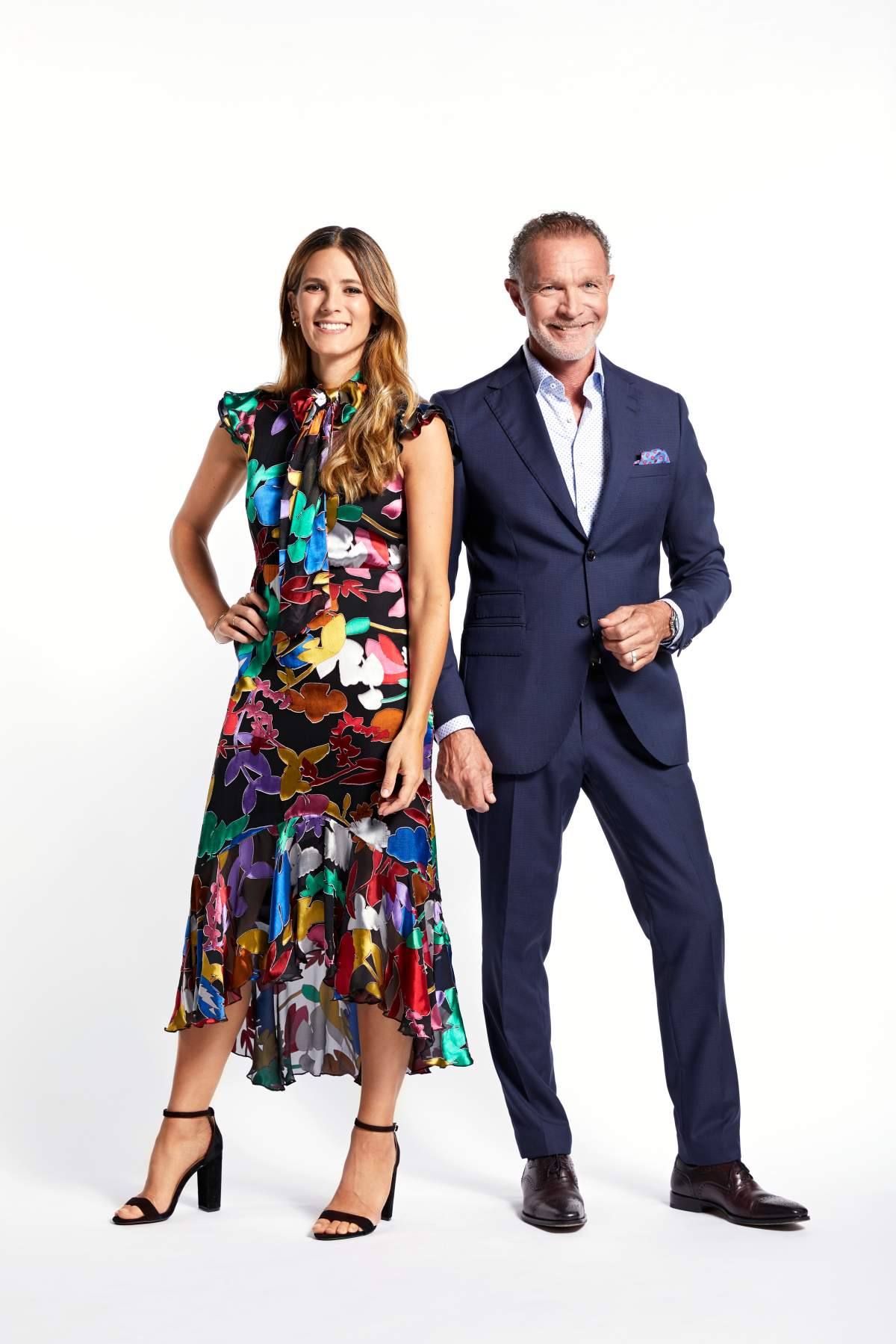
Comments
Want to discuss? Please read our Commenting Policy first.